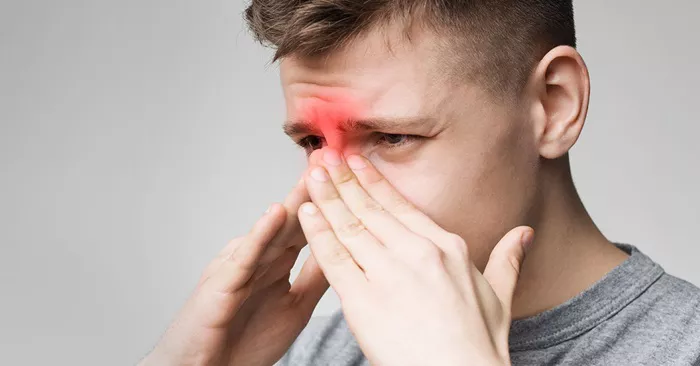Pollen allergies, also known as hay fever or allergic rhinitis, are among the most common allergic reactions worldwide. For individuals who suffer from these allergies, the symptoms can significantly affect their daily lives. Sneezing, runny nose, itchy eyes, and congestion are all symptoms associated with pollen allergies. But how do you know which type of pollen you’re allergic to? Determining which pollen triggers your allergic reactions is crucial in managing the condition and reducing the frequency and severity of symptoms. This article will explore the different types of pollen, how to identify which one you may be allergic to, and the best methods for diagnosing and treating pollen allergies.
Pollen and Its Role in Allergies
Pollen is a fine powder produced by plants, including trees, grasses, and weeds. Its primary role is to help in the reproduction of plants by fertilizing other plants. While pollen is a natural substance, it becomes problematic when the immune system mistakenly treats it as a harmful substance. For people with pollen allergies, their immune systems react to pollen as if it were an invader, triggering the release of histamine and other chemicals that lead to allergy symptoms.
The immune system’s reaction to pollen typically results in symptoms like sneezing, nasal congestion, itchy or watery eyes, and coughing. In more severe cases, pollen allergies can also worsen asthma symptoms, causing wheezing, shortness of breath, and chest tightness. However, not all pollen triggers the same response. Some people may be allergic to one type of pollen, while others may be sensitive to multiple types. Understanding which specific type of pollen is the cause of your allergies is vital in managing and treating the condition effectively.
The Different Types of Pollen
There are three main categories of pollen that are known to trigger allergies: tree pollen, grass pollen, and weed pollen. Each type of pollen has its own seasonal peak and geographical distribution, meaning that the timing and location of your allergic reactions can help narrow down which type of pollen is responsible.
Tree Pollen: Tree pollen is typically released in the spring. The most common trees that produce allergenic pollen include birch, oak, cedar, maple, pine, and ash. These trees release their pollen during different times of the year, but spring is generally the season when tree pollen levels are highest. If you experience allergy symptoms primarily during the early spring, tree pollen is likely the culprit.
Grass Pollen: Grass pollen is most common in the late spring and early summer. The types of grasses that produce allergenic pollen include ryegrass, Timothy grass, Bermuda grass, Kentucky bluegrass, and fescue. Grass pollen can travel long distances, which means that even if you live in an urban area, you may still be exposed to grass pollen. If you notice your symptoms worsening during late spring or early summer, grass pollen is probably responsible.
Weed Pollen: Weed pollen is released in the late summer and fall. Ragweed is one of the most common weeds that produce allergenic pollen, but other weeds, such as sagebrush, pigweed, and lamb’s quarters, can also trigger allergies. Weed pollen is particularly problematic in North America, where ragweed is widespread. If your symptoms worsen in late summer or early fall, weed pollen is likely the cause.
Each type of pollen has its peak season and can trigger allergies at different times of the year. If you notice a pattern in your symptoms, such as specific times of year or geographic locations, it can help you determine which type of pollen is triggering your allergic reactions.
Identifying What Pollen You’re Allergic To
Identifying the specific pollen that is causing your allergic reactions can be a challenging but crucial step in managing your allergies. There are several methods available for diagnosing which pollen you are allergic to, ranging from keeping track of your symptoms to undergoing medical tests.
1. Keep a Pollen Allergy Journal
One of the first steps in identifying the specific type of pollen you are allergic to is to track your symptoms and note when they occur. Keeping a detailed journal can help you identify patterns and narrow down the potential causes. You should record the following information:
When symptoms occur: Note the time of year when your symptoms are at their worst. If your symptoms tend to occur in early spring, tree pollen may be to blame. If they worsen in late spring or summer, grass pollen could be the cause. If your symptoms are worst in late summer or fall, weed pollen is more likely.
Your symptoms: Keep track of the specific symptoms you experience, such as sneezing, runny nose, itchy eyes, and coughing. Certain types of pollen may cause specific symptoms. For example, tree pollen is often associated with itchy eyes and a runny nose, while grass pollen may cause sneezing and nasal congestion.
Geographic location: The location where you live or spend time outdoors can also provide clues about which type of pollen is causing your symptoms. For example, ragweed pollen is more common in certain parts of the United States, while pine pollen is more prevalent in areas with pine forests.
Tracking these details can provide valuable information that can help you pinpoint which pollen is responsible for your allergies. Once you have identified a potential pattern, you can then proceed with more targeted methods of diagnosis.
2. Allergy Testing
The most accurate way to determine which specific pollen you are allergic to is through allergy testing. There are two primary methods used to diagnose pollen allergies: skin prick tests and blood tests.
Skin Prick Test: The skin prick test is the most common method used by allergists to identify specific allergens. During this test, small amounts of various allergens, including tree, grass, and weed pollens, are applied to your skin using a tiny needle. If you are allergic to a particular substance, you will develop a small raised bump at the site of the application. The skin prick test is quick and generally provides immediate results.
Blood Test: A blood test, also known as the specific IgE test, measures the level of allergy-causing antibodies (IgE) in your blood. This test can identify if you have an allergic reaction to specific types of pollen. While blood tests are not as fast as skin prick tests, they can be useful for people who have sensitive skin or cannot undergo skin testing for other reasons.
Both tests are highly effective in identifying which type of pollen you are allergic to, and they can provide a clear picture of your allergies.
3. Pollen Count Monitoring
Another helpful method for identifying what pollen you are allergic to is monitoring local pollen counts. Many weather apps and websites provide daily pollen count reports, which indicate the levels of tree, grass, and weed pollen in your area. By checking the pollen count in your region and correlating it with your symptoms, you can get a better idea of which type of pollen is causing your reactions. For example, if you notice that your symptoms worsen when tree pollen counts are high, it is likely that you are allergic to tree pollen.
4. Allergy Specialist Consultation
If you’re unable to pinpoint which pollen is causing your symptoms through self-monitoring and pollen count tracking, consulting an allergy specialist is a wise next step. An allergist can perform detailed testing and help you understand your allergies better. They can also recommend an appropriate treatment plan, which may include medications or immunotherapy to help manage your symptoms.
Treatment Options for Pollen Allergies
Once you know which pollen you are allergic to, it’s important to seek treatment to manage your symptoms and prevent them from interfering with your daily life. The treatment for pollen allergies can vary depending on the severity of your symptoms and the specific type of pollen that triggers your allergies.
1. Antihistamines
Antihistamines are medications that block the action of histamine, a chemical released by the immune system during an allergic reaction. They help alleviate common allergy symptoms such as sneezing, runny nose, and itchy eyes. Antihistamines are available in both over-the-counter and prescription forms, and they are effective in treating most types of pollen allergies.
2. Nasal Corticosteroids
Nasal corticosteroids are anti-inflammatory medications that help reduce swelling and inflammation in the nasal passages. They are effective for treating nasal congestion, sneezing, and runny nose associated with pollen allergies. Nasal corticosteroids are typically used on a daily basis for long-term relief.
3. Decongestants
Decongestants are medications that reduce nasal congestion by shrinking the blood vessels in the nasal passages. These medications can be taken orally or as nasal sprays and are often used in combination with antihistamines for more effective symptom relief. However, decongestants should not be used for more than a few days, as prolonged use can lead to rebound congestion.
4. Immunotherapy
For people with severe pollen allergies, immunotherapy (allergy shots or sublingual immunotherapy) may be recommended. This treatment involves gradually exposing the body to small amounts of the allergen over time to build tolerance and reduce the severity of allergic reactions.
Conclusion
Determining which type of pollen you are allergic to is an important step in managing and treating pollen allergies. By tracking your symptoms, seeking medical testing, and monitoring pollen levels, you can identify the specific allergens that trigger your allergic reactions. Once you know what you’re allergic to, you can take the necessary steps to avoid exposure and seek appropriate treatment. Whether through medications, allergy shots, or lifestyle changes, managing pollen allergies is possible, and with the right approach, you can significantly reduce your symptoms and improve your quality of life.
Related Topics

































